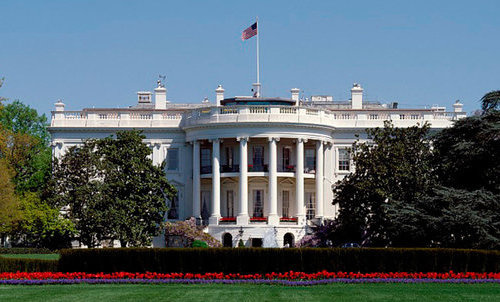The Unitarian Universalist Service Committee advances human rights through grassroots collaborations.
A Win for Rights, but the Struggle Goes On
By on March 20, 2017
These rulings, like those that blocked the first order, come as a great relief to refugees, immigrants, Muslim Americans, and everyone who cares about our country’s values of individual rights and equal treatment.
Two key rulings by federal judges in Hawaii and Maryland last week have temporarily halted the implementation of the President’s second attempt at a “travel ban”—widely referred to as the Muslim Ban 2.0. These rulings, like those that blocked the first order, come as a great relief to refugees, immigrants, Muslim Americans, and everyone who cares about our country’s values of individual rights and equal treatment.
Under these rulings, refugees in the United States will be able to reunite with their family members without fear of being denied a visa purely because of their nationality, people who have applied for third-country refugee processing in Costa Rica will no longer be stranded in limbo, and some refugee children in Central America who have already spent months or longer waiting in deadly conditions will again board flights to safety.
Too close for comfort
As crucial as these rulings were, however, they should never have been the only thing standing between people and the loss of their rights. The first ruling came down only a few hours before the ban was set to go into effect. Refugees, visa applicants, and nationals of six Muslim-majority countries were left staring down a precipice of possible family separation and years of processing delays up until the last minute. This was far too close a call.
Neither ruling offers permanent relief from these fears. They are both temporary restraining orders and could be lifted on appeal. The administration has already made clear its intent to fight the rulings, and Trump has suggested that he may return to the, even more discriminatory, version of the first order.
Moreover, the ban, even if permanently blocked, has already had a chilling effect on the lives and prospects of refugees. Since January, the Department of Homeland Security (DHS) has stopped conducting new interviews with child refugees applying for the Central American Minors program (CAM), even though the executive orders were supposedly on hold. Asylum-seekers from Africa and the Middle East have been fleeing the United States for Canada in significant numbers, enduring a frigid and dangerous journey on their way, because of the U.S. government’s undisguised hostility to their rights. And none of these court rulings will affect the administration’s other executive orders and implementation guidelines that continue to target immigrants and asylum-seekers.
What did the courts decide?
In many ways, the refugee ban has been foiled so far because of the President’s own rhetoric. The courts did not have to look hard for evidence of discriminatory intent for the actions of this administration. In fact, they relied on the President’s campaign statements that he would seek “a total and complete shutdown of Muslims entering the United States” and that “Islam hates us.” Both cited Trump’s comments in interviews that he only stopped referring to a Muslim ban in public because “[p]eople were so upset when I used the word Muslim” that he decided to “talk […] territory instead of Muslim.” Further, administration officials have been quoted stating that the second executive order was meant to accomplish the same purpose as the first, even as the first was under a nationwide injunction because of its discriminatory purpose.
The second version of the order claims it does not discriminate. Instead, it offers a “national security” rationale for the ban (one that did not appear anywhere in the text of the first version), and which administration officials were not able to supply when asked for it at trial. These are strong indicators that the national security argument was a mere pretext. In fact, Maryland District Court Judge Theodore Chuang found that national security was “not the primary purpose for the travel ban.”
The administration claimed that people who come from six conflict-ravaged nations—Iran, Libya, Syria, Somalia, Sudan, and Yemen—pose a greater terror risk than others. (They make no mention of the role the United States itself has recently played in conflicts in more than one of these countries.) The administration’s argument is not only belied by a recent DHS report which found that country of origin has little determination on whether someone is likely to commit violence. It is also a betrayal of our national promise, violating one of our most important social values: that people should not be judged based on where they come from, but rather as individuals with worth and dignity.
One order down – an entire political agenda to go
The executive orders are so extreme that they may not survive the legal challenges ahead. However, the courts on their own will not be able to forestall every piece of a larger xenophobic agenda. There are signs, for instance, that the administration could still suspend the refugee program even if the rest of the executive order is not allowed to stand. The Maryland court, for one, while blocking portions of the executive order, did not extend its ruling to cover the refugee program. This choice is difficult to understand, given that the assault on the program was motivated by the same anti-Muslim bias (nearly half of refugees currently entering the United States are Muslim, and the vast majority coming from the same Muslim-majority countries targeted in the order).
UUSC will remain vigilant in the months ahead and pick up the work of resistance wherever other remedies are insufficient. Our organization was born out of the struggles of refugees and victims of persecution during World War II and we will continue to speak out against the politics of hate and all efforts to unwind the moral consensus that has emerged since those years. UUSC is in solidarity with all marginalized communities as we struggle for greater recognition of human rights.
